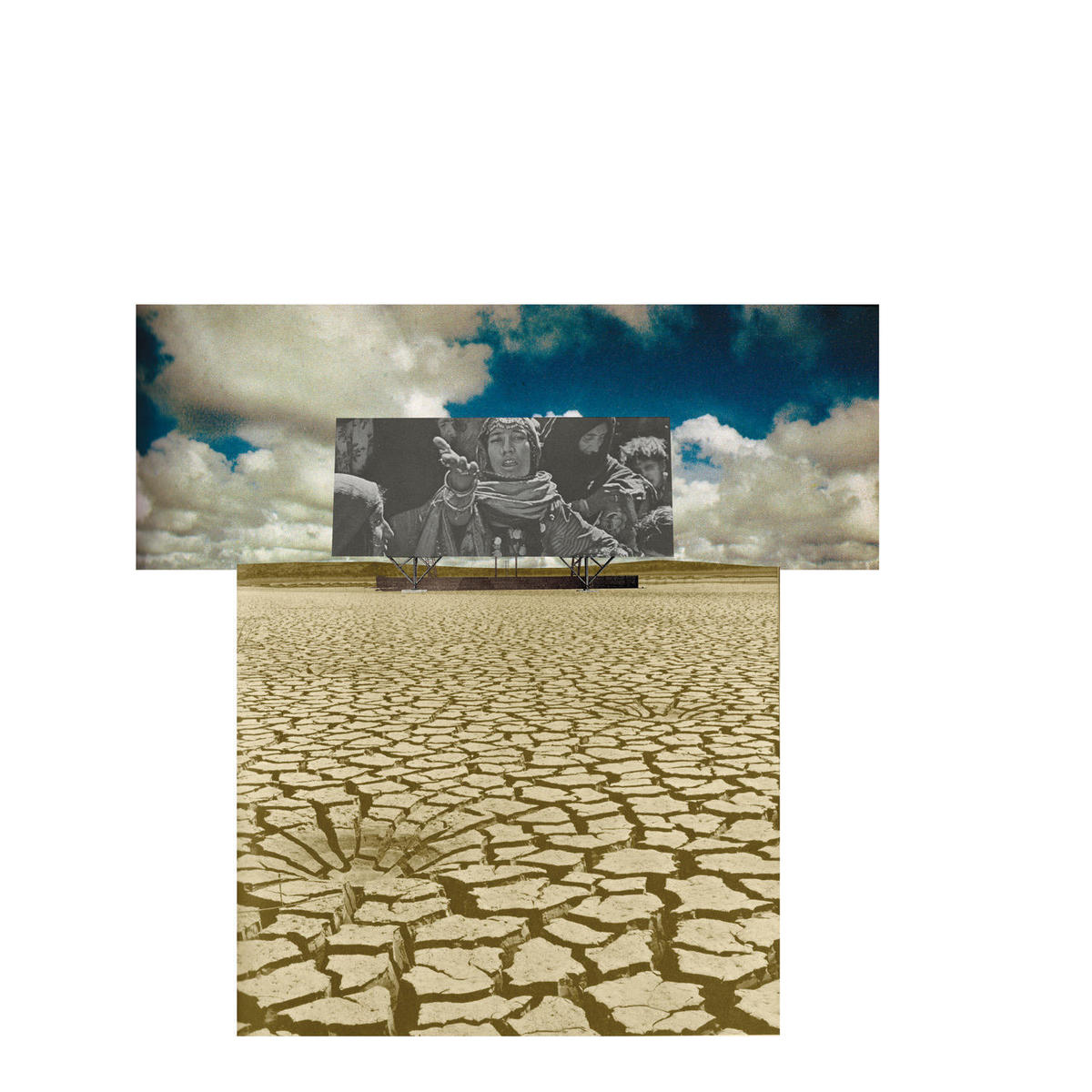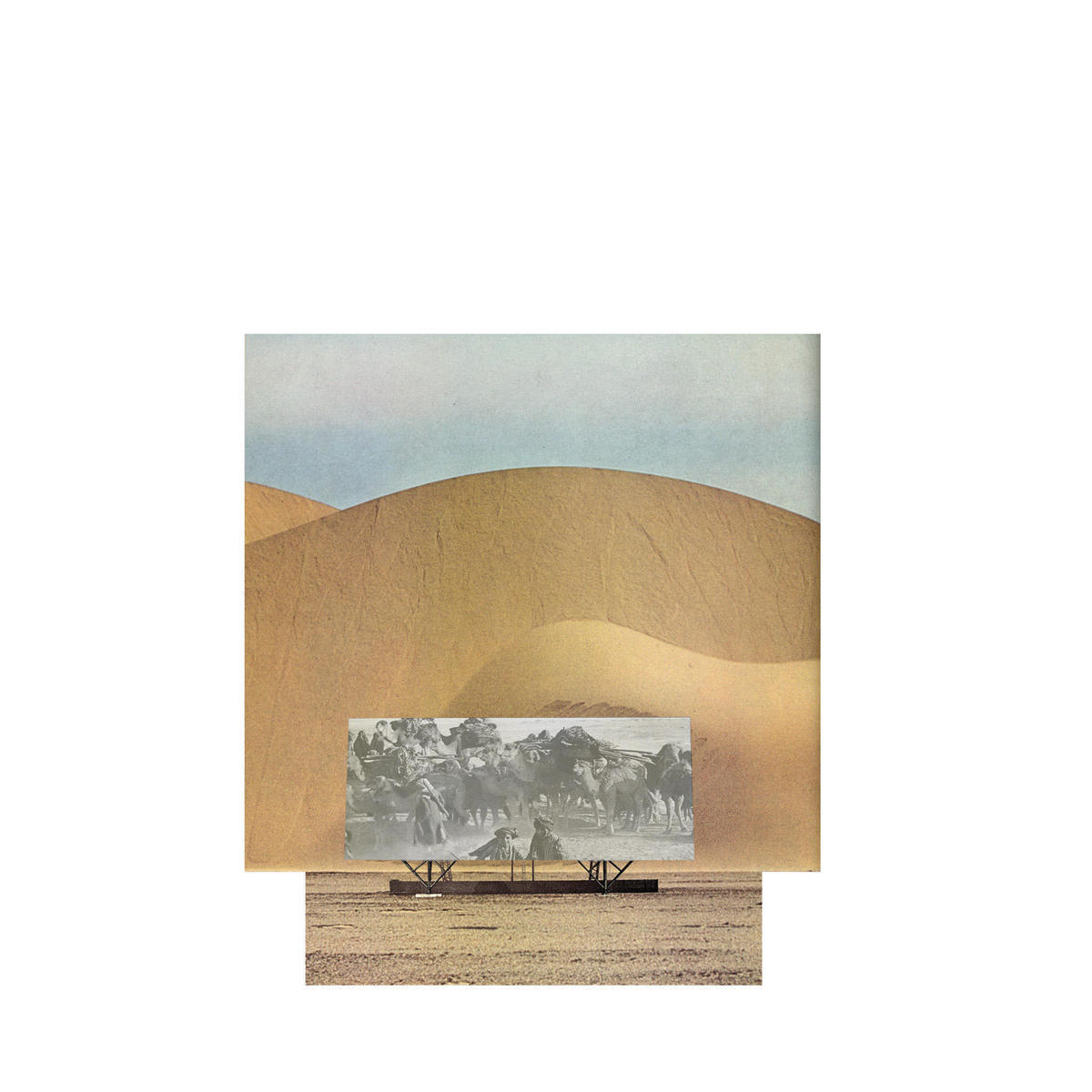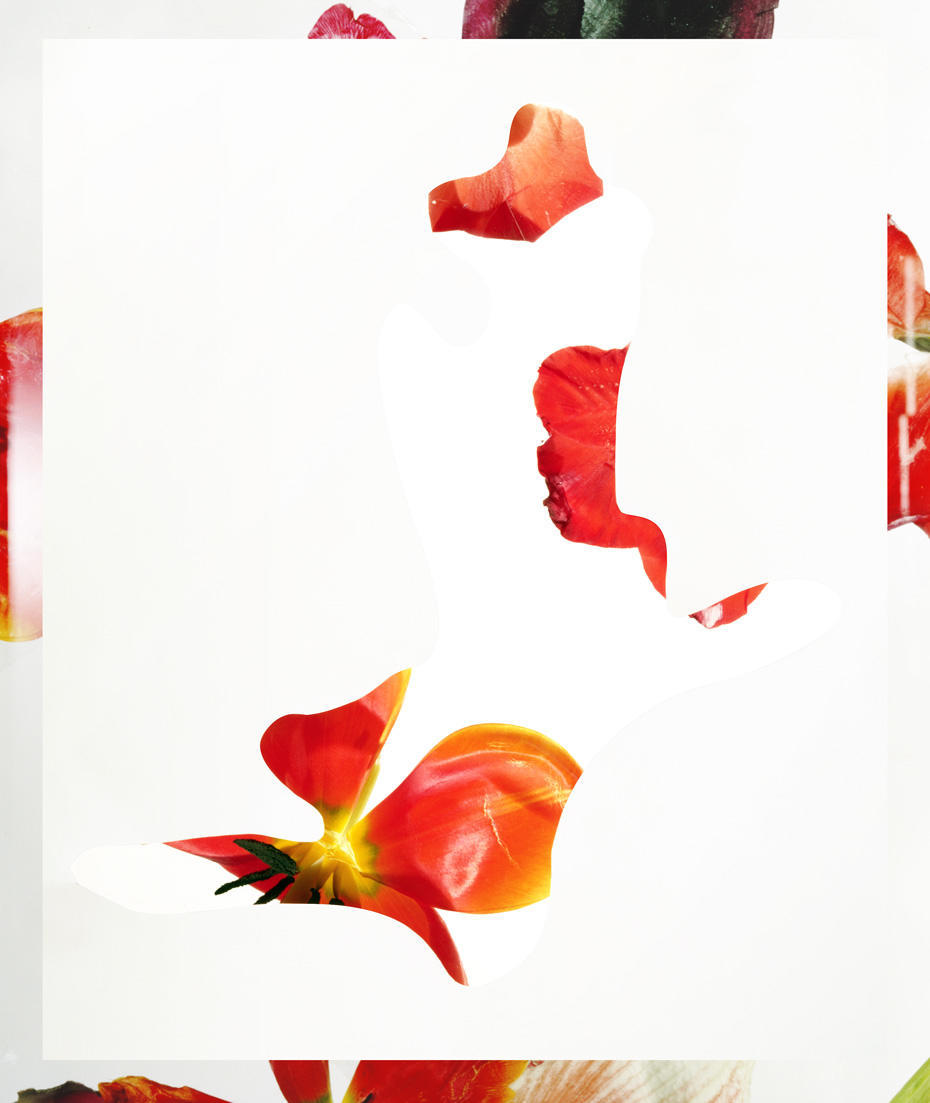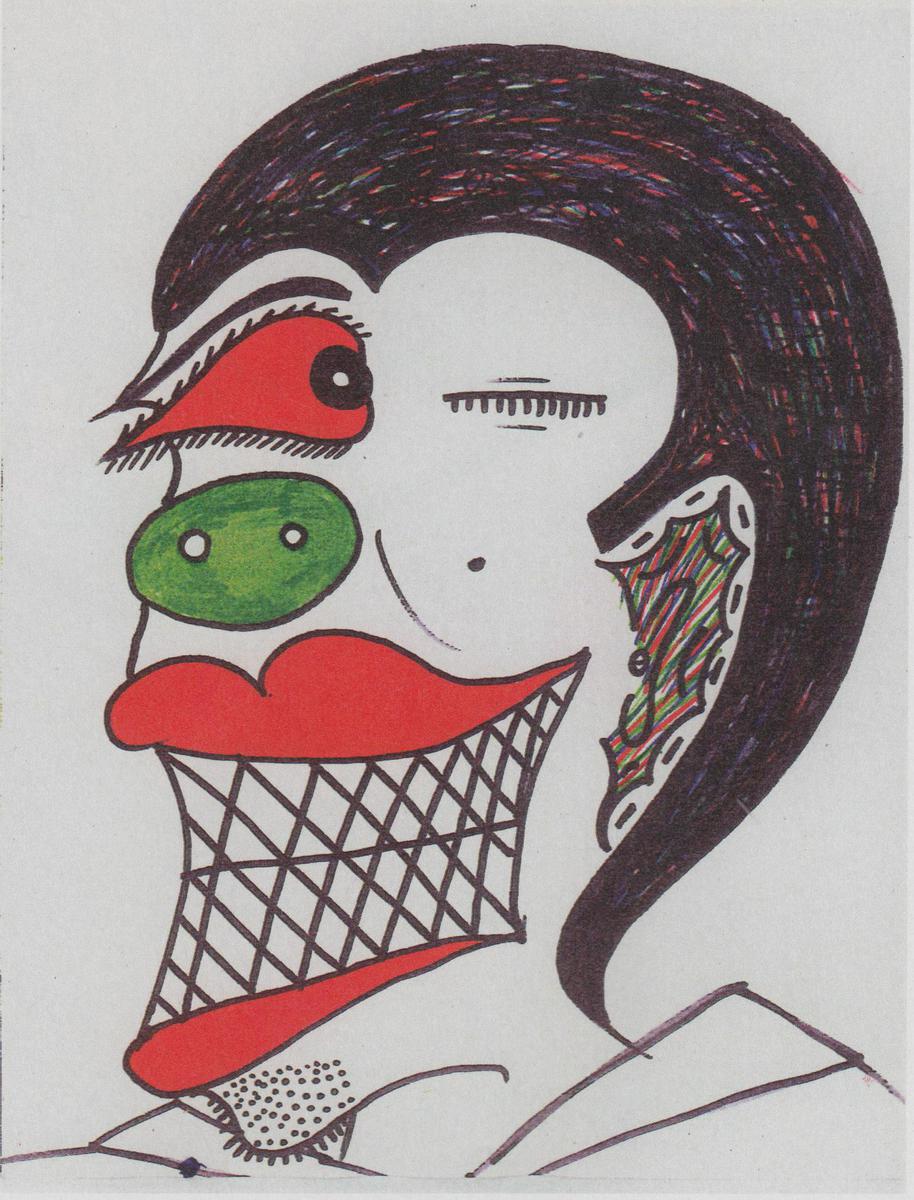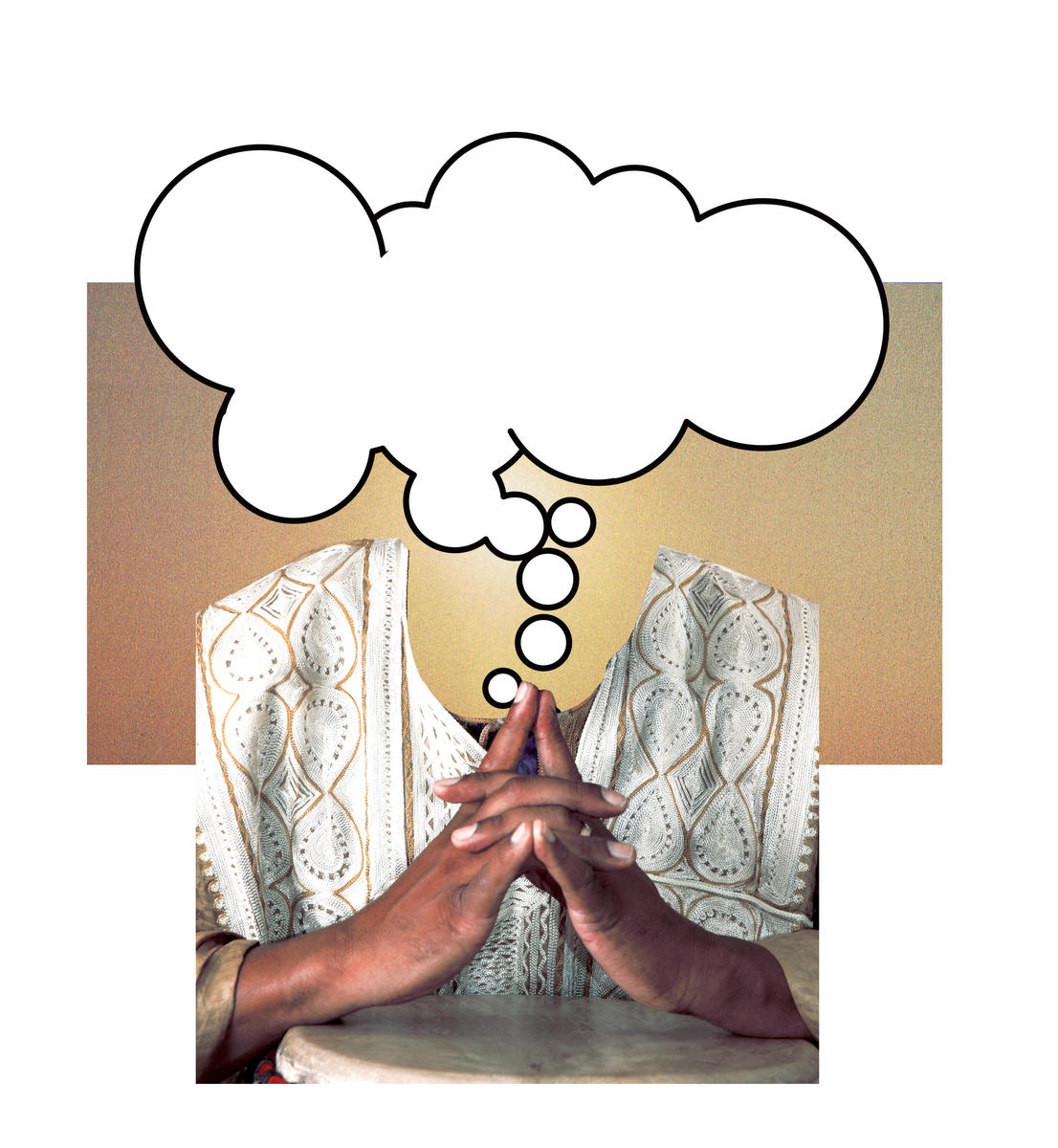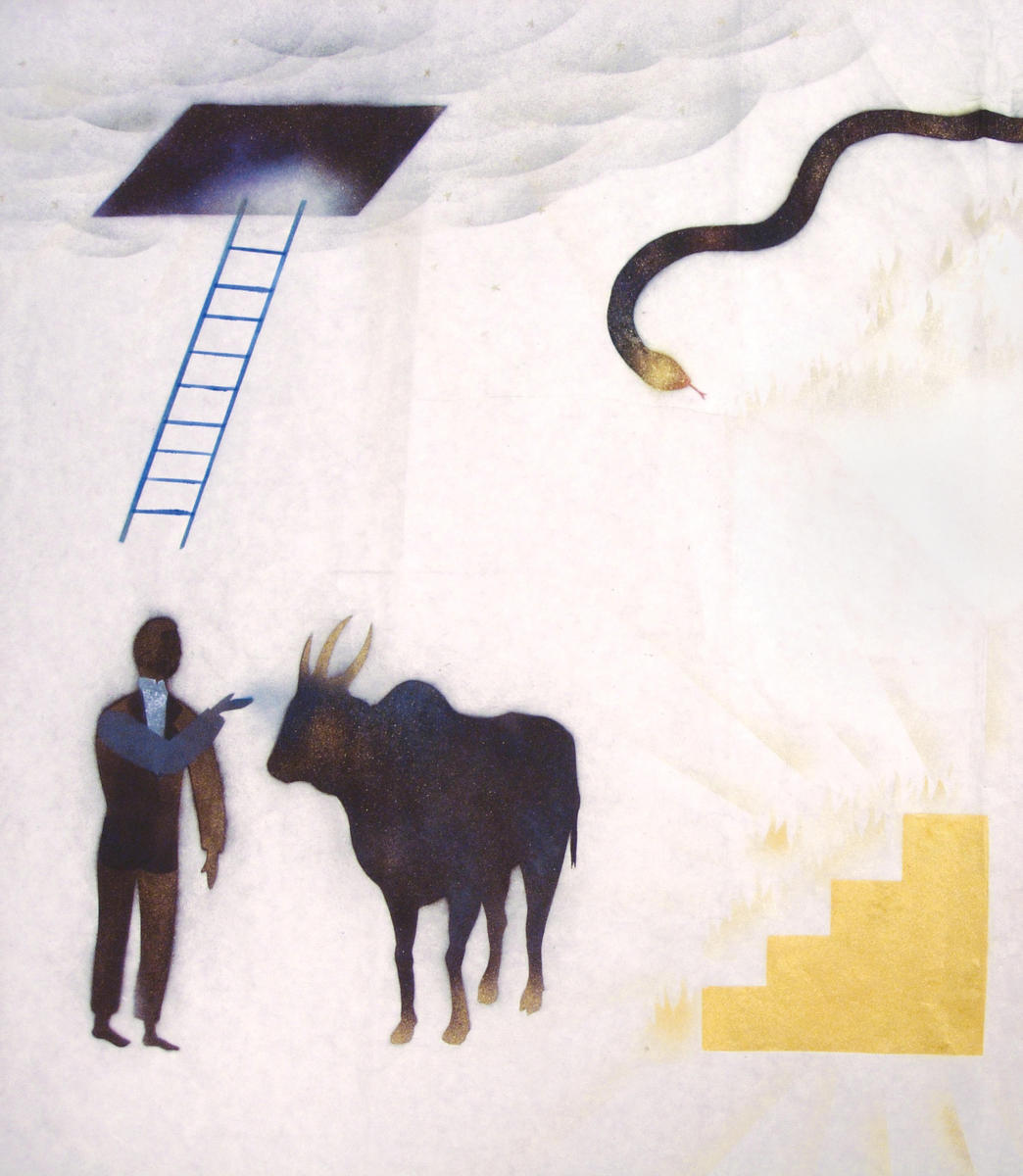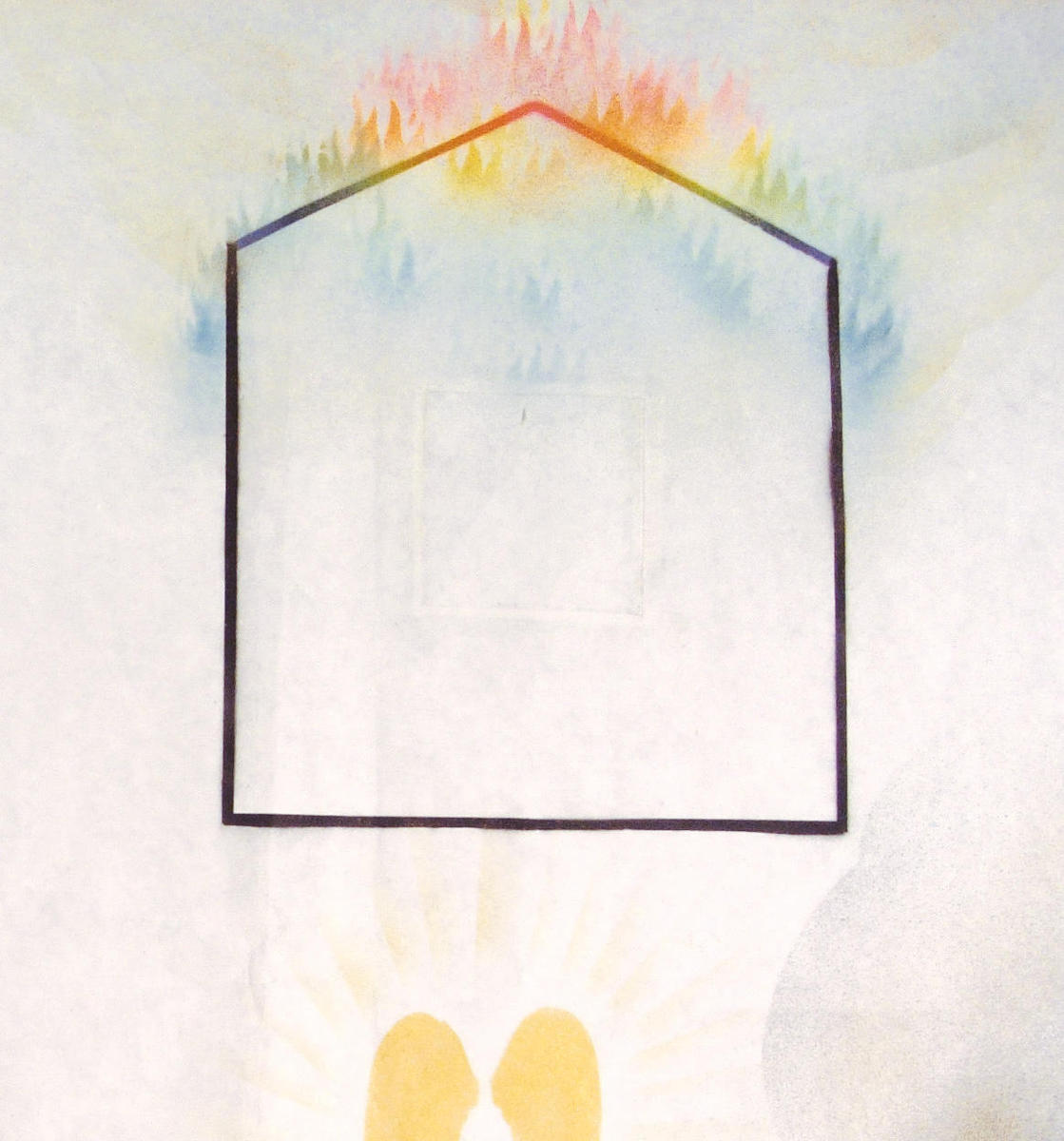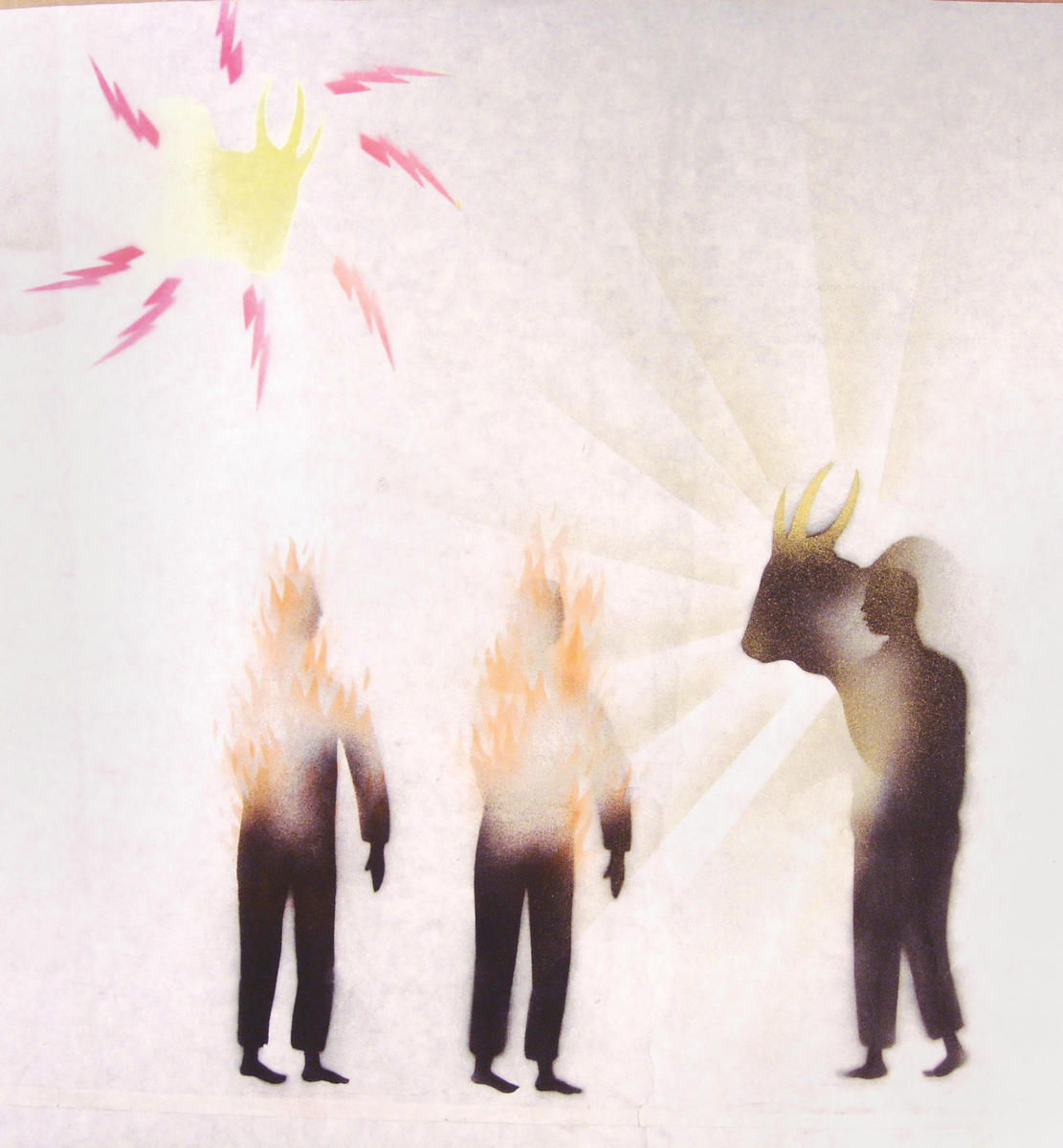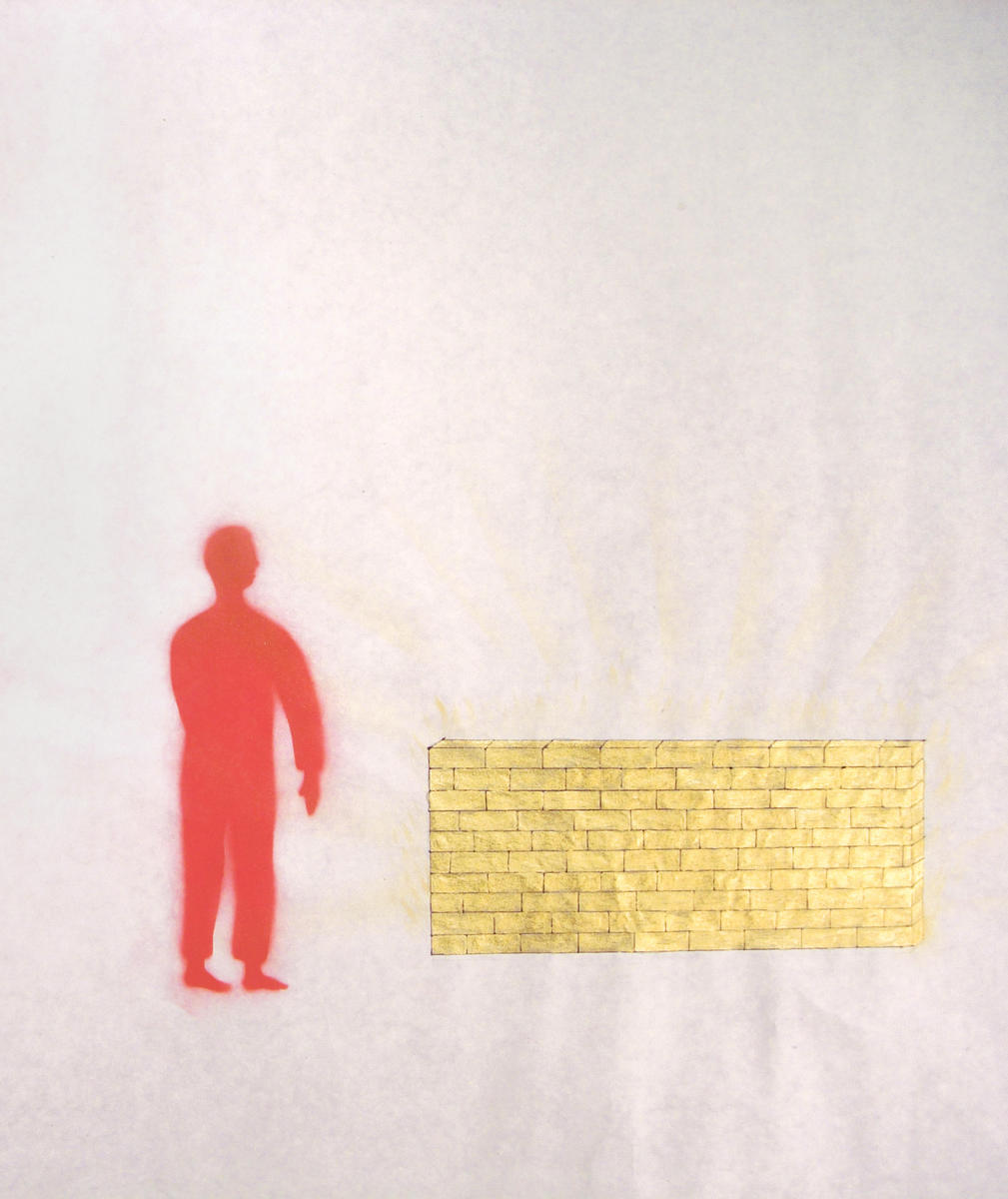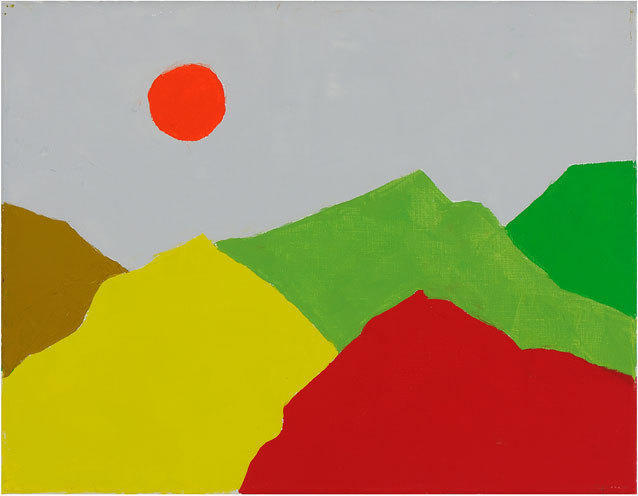
In the late 1980s, I was phoned by poet and critic Ammiel Alcalay, who urged me to hear Etel Adnan read the next night at the Graduate Center. He told me Adnan was an Arab-American poet, writer, playwright and painter, born and raised in Lebanon. Since he had never urged me to attend an event before, I decided to go. The lecture hall was filled. I remember Edward Said and his wife were in the audience. Adnan took her seat behind a table at the front, and, from the moment she began reading, her passion, great intelligence, and sensitivity to language and form felt palpable. It was a rapturous night, during which I said to myself, I’m so glad I came. Imagine if I’d missed this.
Adnan writes about exile and place, women and men, war and nature, paying homage to the beauty, complexity, and even the horrors of our lives. She is a philosophical poet. She is the author of, among others, the acclaimed novel Sitt Marie Rose, which has been translated into ten languages, including Urdu and Bosniac, and the epic poem, The Arab Apocalypse. Her paintings have been exhibited internationally and are included in various museums and collections. Adnan’s plays have been produced in San Francisco, Paris, Caen, Dusseldorf, and Beirut, her poetry set to music by composers such as Gavin Bryars, Henry Threadgill, Tania León, Annea Lockwood, and Zad Moultaka. Her latest books are In the Heart of the Heart of Another Country and The Master of the Eclipse.
After I heard her read that night, I made contact with her. I saw her twice in New York City, when she was on her way to Paris. I phoned her there a couple of times, and we maintained an infrequent correspondence. I read her books. Her partner, Simone Fattal, who is the publisher of the Post-Apollo Press, always sent me her new books, and Etel always signed them affectionately. Having the chance to talk with Etel Adnan for Bidoun, at length and in her home in Sausalito, was a gift.
Lynne Tillman: You’ve written that you can never separate experience from theory.
Etel Adnan: We don’t just speak out, we order our thinking. If that’s what’s meant by theory, then you can’t escape it. If one means, rather, that any time one speaks, what one says is predetermined — for example, this is my way of speaking, I will conform everything to that style and approach — it is not only bad, but it also doesn’t work. It is why, sometimes, my work seems to go in many different directions. It could be harmful, but I can’t do otherwise. But to do that doesn’t mean not to have direction in one’s thinking or to be lost. I want to accept things as they come and see what to do with them.
LT: One’s own experience of the world might always fall into a category or theory one believes.
EA: I accept contradiction when it happens. Today I may say something philosophical — if I can talk of the idea of “being” separated from objects, then I can also say there is no “being” outside manifestation. One month later I might write its opposite and be aware of it. That doesn’t bother me, because I seek new connections. Of course, you must have some points of reference in your life.
LT: War is an enduring point of reference for you.
EA: I have become politically nonviolent. I’ve reached a point that this feels right. I will not compromise that. On other matters, I feel a kind of absolute, if we can use that word—I do not accept the sexual abuse of children. But I have very few of those absolutes. Everything else is in flux.
LT: I admire writing when I feel there is an intelligence behind it, that the language is closely handled, in whatever form the writer happens to choose.
EA: I don’t privilege one approach over another. I don’t privilege it within my own works. Some people are prisoners of the decisions they make.
LT: It’s fascinating in Sitt Marie Rose, your novel about the Lebanese Civil War, the variety of styles and forms you chose. First, what does “sitt” mean?
EA: “Sitt” is an Arabic word, used in Lebanon and Syria mostly, and Egypt, to mean “madam.” It’s not formal. A girl of five years old in conversation can be “little sitt so-and-so.” “Sitt” can also be for married or single women. It’s a colloquial way to address a woman. It carries some respect.
LT: How did Sitt Marie Rose come about? When did you write it?
EA: I wrote it before the end of 1976. The event it’s based on occurred in early ’76. The Christian Phalangists kidnapped a woman whose real name was Marie Rose. People immediately recognized her when the book came out.
LT: You wrote it in French.
EA: I was in Paris and had read in Le Monde about Marie Rose Boulos’s being kidnapped. I knew she was already dead. I became upset, and wanted to write it down. You are a writer, you know one discovers through writing matters that wouldn’t occur to you otherwise. I wanted to find out — all cultures include violence — which forms the Lebanese culture has taken. We don’t know any human group in history that hasn’t been violent. I don’t believe any nation is better than any other on that score. But what attracted me to this violence was my knowledge — the young men who kidnapped, tortured, and killed her, I had grown up with them. I knew Phalangists, and she was Christian, too. Through her they wanted to teach a lesson to the various factions.
People use religion to excite people and send them to war, like Bush with the word “democracy.” It’s dogma misuse. The Phalangists were, in their minds, defending Christian values, but in fact they were defending their power against the Muslims. There are Orthodox Christians in Egypt, Syria, Lebanon. The majority of Christians in Lebanon are Catholic, so they had links with Rome, and the French, a Catholic nation. The French created a place where these Christians would have their own country — after World War I, when the big powers carved up the Middle East. But if everybody were Christian, the new country would have been too small. So they included territory inhabited by Muslims. This is the key to the Lebanese problem — the Christians of Lebanon say, and it’s true, the country was created by the French for them. But after two generations, the Christians found they were no longer a sizable majority. Today they are not the majority. It’s the source not of hatred but of the antagonism in Lebanon.
LT: Your novel shifts and flows, from politics with its varied discourses, through voices and styles. One of its brilliant inventions is the deaf-mute schoolchildren.
EA: What you call a silent majority.
LT: [Laughs] They are taught by Sitt Marie Rose. They don’t speak — she is the only one who is kind to them. The four male characters, who represent various factions of the Christians, speak — they are all anti-Muslim. Sitt Marie Rose is sympathetic to the Palestinian cause.
EA: Which was why she was killed.
LT: The deaf children are presented “speaking” in the first person. Throughout all the formal changes, I was able to understand where I was, who was speaking; you included politics but didn’t re-create politics. You re-imagined everything — desire, impressions, feelings.
EA: And the description of the state of war in a specific place. Politics is such an important part of our lives, whether we like it or not. Why shouldn’t it enter novels? In poetry, people mostly avoid politics. They think it’s not poetic. But The Iliad is a political work. I became an American poet by writing against the Vietnam War, I joined the movement by writing against the war, spontaneously.
I feel the first thing is to be true to oneself. Now you will say, what if you are a monster and are true to yourself? [Laughing] If you’re a monster, you’re going to be true to that self anyway. But a movement of poets against the war didn’t happen with Iraq, which is as monstrous a war and as long. Why? We are in a period when there is, funnily enough, more poetry being written in proportion to the population than during Vietnam. Poets have followed the general apathy of the Bush and Reagan years.
LT: Maybe that speaks about where poetry is in terms of its relationship to society. Some writers may feel themselves at a great distance.
EA: It’s because of the kind of poetry they are writing — a very abstract poetry. They are discovering new forms, by complicating form and by avoiding anything that would smack of a message. And, like all great writing, it can defend itself beautifully.
LT: In Virginia Woolf’s essay, “The Death of the Moth,” she observes a day moth — which lives twenty-four hours — and watches it die. By looking at it, she understands the struggle to live, the finality of death.
EA: You’re right, one can express anything, in the most unexpected way.
LT: What I want to suggest is that fiction and poetry need not be specific to a political event to embrace the effects and depredations to life because of war, violence, injustice.
EA: No. I went to Iraq twice, and, in spite of Saddam’s dark side, there was great vitality, artistic vitality — it had the biggest readership of contemporary Arabic literature. Iraq had great painters, musicians. It was the most dynamic Arab country for some thirty years, with an excellent medical system, the best in the Arab world. So the destruction of it…
Simultaneously, Saddam was an excessive character. You were for him or against him, no in between. In that sense, he was a total dictator. Still, something was happening there. There was the same oppressive rule in Syria, but without the counterpart in culture Iraq had. When America attacked Iraq, each time they moved, they destroyed it. I didn’t feel my best friends, poets or non-intellectuals, really cared. Though when you think about it, there is so much going on in the world, and Americans cannot care for everything. But this is something that America started and did.
LT: There’s a passage from Sitt Marie Rose, which, though it came out here in 1982, could have been written now: “In this society where the only freedom of choice, when there is any, is between different brands of automobiles, can any notion of justice exist and can genocide not become an instable consequence.” It articulates the horrible sense of possibility of genocide.
EA: Hatred can lead to genocide. You don’t win, so you will tomorrow, or after tomorrow, but you’ll keep going. There is no real rationale to it. The US is not immune, but prosperity made America relax. If this financial crisis goes on, ten people will fight for one job, and race or religion might lead to, “How come the Chinese and the Latinos have a job and I don’t?” To a degree, American prosperity created a certain benevolence.
America is interesting — everything is true about it, and its opposite is true. There can be an atmosphere of benevolence, but the word “socialism” is taboo. In one way, we have a people’s country, there’s no aristocracy. We have a democracy in many ways, really. But people are horrified by universal health care, which Europe and Canada have as a matter of course.
LT: I believe that existentialism as a philosophy is important to you.
EA: Yes, I went to Paris as a student in 1950. Sartre was the great thing, and I had not heard of him in Beirut. It was like a miracle. I had come from a culture where we lived on a more basic level.
My father was highly educated for those days, my mother was not. We had no books at home. My mother had the Gospels, she was a Greek from Smyrna — Greek Orthodox. My father was a Muslim from Damascus in the Ottoman Empire. He had the Qur’an, he knew it by heart. Amazingly, the books existed on a shelf next to each other. So I have no problem with coexistence. I grew up with it. People finished their education — if they were lawyers they went to law — but that generation didn’t have books in the home.
In Paris, everything was new, astonishing, until I was thirty. I was in a stage of discovery for thirteen years, until I started teaching, which gave me a distance from reality. I was immersed in reality until I was thirty.
LT: How do you mean, “reality”?
EA: In the present — that type of reality. When I read Sartre, I was floored because I’d attended French Catholic schools, they were the only ones you could go to, and they hammered us with religion — you’re moral because you follow religion. Sartre said you could be moral without being religious.
LT: Did you hear Sartre speak?
EA: No, but his philosophy changed my life. Its second idea was about responsibility, and that is empowerment. I didn’t have the word or concept then, but it’s what existentialism offered people. Coming from a Catholic school, I know firsthand that you are meant to follow the church, the priest — then you are a good person. You go to confession. By saying you are responsible, you are your decisions — I think that’s liberation. It’s not, “Obey and shut up.”
LT: I’m curious how your parents met. A Muslim from Syria, a Greek Catholic from Smyrna.
EA: They met during WWI, in Smyrna, in the street. He followed her. They got married. He already had a wife and three children in Damascus, but he didn’t tell her. She was so poor that, for her, it was a fairy tale. He was governor of Smyrna, a top officer; he’d been Atatürk’s classmate, because though my father had been stationed in Damascus, the sole military school was in Istanbul. Then the war was lost, and my parents went to Beirut. From there it was downhill.
LT: They were poor, but you were well educated.
EA: I was educated because I went to a French school. But about my social class — I didn’t identify with the rich or the poor, though my father’s family in Damascus were among the top families. My mother was extremely poor when she grew up. She used to say there were only two jobs in Smyrna for women — to pick grapes for raisins or be a prostitute.
LT: You often write about prostitutes.
EA: If my mother hadn’t married my father, she may have been one. She was sixteen when he met her. Then the Greeks in Turkey were in concentration camps. Not like the German ones, more like the Japanese camps during WWII here.
LT: Were they comfortable letting you go to Paris?
EA: My father was dead by that time. It broke my mother’s heart. I was twenty-four when I went. I had a French government scholarship for three years.
LT: How did that happen?
EA: I worked from the age of sixteen. I was the only child. We needed money. I cut school for a year, and one day I was crying in the office, and my boss, a Frenchman, asked, “Why are you crying?” “Because everybody goes to school and I don’t.” He said, “Why not? I’ll help you.” But I said, “I work all day, there are no night classes. But I could take morning classes.” He let me come to the office at 10am instead of 8 — I made it up at night. I finished the whole program in two months instead of eight and received a baccalaureate, which allowed me to go into the third year of a French school that specialized in literature. I quit the first job and found one doing almost nothing, for a man who wanted to write a novel. He thought if I just sat there, he would write it. He didn’t, for two years, but I was paid every month. I read books in his library. [Laughing]
In the French school, Gabriel Bounoure taught us Baudelaire, Rimbaud, and Verlaine. He wanted literature to be free from the Jesuits, and he taught poetry. Thanks to him, we got an enlightened education. He’s the one who encouraged me to apply for a scholarship to Paris. I told him my mother didn’t want me to. When I told her, she went crazy. I was her only child, and I’d be in a foreign place. But I went.
LT: You were very brave.
EA: Brave in many ways, but also brave with no sense of the future. It was day-to-day bravery.
LT: It raises the question of developing character, your character, and how you respond to others, and fashioning characters in fiction.
EA: Some people have hardships that kill them. Others are made so bitter they have no hope. But hardships can also, in some cases, become experiences one can grow from.
LT: Often in your writing, there are questions of liberty and madness. In Of Cities and Women, set in Barcelona, in the Ramblas, a woman walks down the street completely naked: “After she passed me I saw her from behind, and was wondering if she was really naked. She was. She continued down the avenue probably heading for the red light district… . Was this a scene of absolute liberty or of insanity?” I don’t know, sometimes, what I’m seeing.
EA: That’s interesting, to say you don’t know what’s happening.
LT: I’m wary of making judgments, generational ones — “In our day, this or that.” Nonetheless, what is being free or crazy? What’s possibility or breakdown?
EA: They’re both such flexible notions. We don’t know completely what we mean by freedom, especially when freedom is used as a nuisance to others. We also don’t really know what insanity is.
LT: We don’t know what the benefits or disadvantages of certain behaviors are or will be.
EA: Insanity, as a category, has mostly disappeared. But how do you run a society between these two notions, both boundaries, which in effect include disorders? To implement law, what do you do when you have power? How do you use it? Stop? How to integrate contradictory rights?
LT: In your poetics, you are very free. In Of Cities, you employ the epistolary form.
EA: Because it gives one freedom. I wrote it because my friend Fawwaz wanted me to write a paper on feminism.
LT: “Several questions come forward at the same time, pushing each other. Calling us or escaping us. Should we wish for the acceleration of this process, which is that women become more like men, or should we rather hope for the metaphysical distinctions…” You’re so succinct, discussing a complex issue that’s still very much with us. I’m not an essentialist, but how do we maintain differences and reduce inequality?
EA: I have no answer, but it is a genuine question.
LT: It’s also similar in regard to varieties of cultures and societies, religions — can we respect differences amidst, for lack of a better word, globalization?
EA: The trend is toward uniformity. Obviously women have been acculturated to use their femininity, men their masculinity. I don’t think that we want to keep everything we have called “the feminine.” We need societies to maintain what I’d call a metaphysical balance, the different qualities of masculine and feminine. Aggression is part of life, but we also need a counter aggression. We need men who are against war as much as women — though there are more and more women for war. We need diversity and balance in the sexes.
LT: It’s in your writing, though I don’t know if I’ve read the word as such: forgiveness.
EA: Goodness of the heart. That is the core of Christ and Christianity. Everything else is an invention of his followers. When Jesus said, “I am the Son of God,” he didn’t mean it the way it’s interpreted. In Semitic languages, in Arabic, to be a “son” is an everyday expression. For example, a man might say, “Young man,” take him by the hand, then say, “My son, do you know what time it is?” To be the son is to be accepted. It’s a friendly word. When Jesus said, “I am the Son, Father,” he meant “I am accepted, and what I say is agreeable to the Father, to God.” He spoke in Aramaic, older even than Arabic.
LT: In The Arab Apocalypse, an extraordinary epic poem, I noticed the word “sun” throughout. I’d never encountered “sun” presented in so many ways.
EA: As a child, I had a strong sense of the presence of the sun. In the summer, the sun is very vivid in Beirut. I was fascinated by the shadow my own body made, when going for an afternoon swim. In my twenties, I heard the French say that Arabs were the children of the sun, les enfants du soleil. It was said with disdain — Arabs were irresponsible, grown-up children. And I remember walking into the mountains of my village, never wearing a hat, being very aware it was hot, feeling surrounded by the sun like a thief by the police. As I said, we didn’t have many books, and not having brothers and sisters, I was more involved with noticing what was around me.
LT: In all of your work there’s a strong emphasis on nature and relationship to a sense of place. It’s as if to lose one’s place, to feel in exile or be in exile, focused you.
EA: You’re absolutely right. My relation to place is also a desire to know where I am. When I arrive somewhere, I want to know, where’s south? My partner, Simone, asks, “Why do you bother?” I like to be oriented. I grew up as an anguished child, partly because of not having brothers and sisters in a society where I was marginal. My father, an Arab from Damascus, living in Lebanon — I was born and raised in Lebanon, my mother was Greek. The French were ruling Lebanon, so we were also marginal in relation to a colonial power. And my parents were a mixed marriage — there were few. I think I compensated by trying to know always where I was.
LT: The Arab Apocalypse takes a unique approach to writing on the page — you use signs, lines, curves, symbols.
EA: The signs are there as an excess of emotion. The signs are the unsaid. More can be said, but you are stopped by your emotion.
LT: The word “stop” is in capital letters throughout. As in, “Stop This War.”
EA: I wrote The Arab Apocalypse when Tel al-Zaatar was under siege. Tel al-Zaatar is a neighborhood in Beirut, where twenty thousand people, not all Palestinian but mostly Palestinian, lived underground. The Phalangists and their allies attacked in ’76. Maybe the fighters in the camp had some advance notice and left. But the women, children, and old people who remained were slaughtered. It was worse than Sabra and Shatila.
LT: Worse than Sabra and Shatila?
EA: It was as bad and worse. There was only one well, so women would go there for water. Maybe twenty, to make sure one got back. They were surrounded by snipers. The Arab Apocalypse is about Tel al-Zaatar — the hill of thyme — but its subject is beyond this siege, which was the beginning of the undoing of the Arabs. This war was the sign of disaster coming, that by mismanagement and mistakes, the Arabs would undo themselves.
LT: The form and content of The Arab Apocalypse are imaginatively fused: “A sun and a belly full of vegetables, a system of fat tuberoses. A sun which is SOFT. The eucalyptus. The Arabs are under the ground. The Americans are on the moon. The sun has eaten its children. I myself was a morning blessed with bliss.” What’s produced is a sense of survival, even in the midst of atrocious conditions and behavior.
EA: I started this book when I lived in Beirut. It’s fifty-nine poems, the same number as the days of the siege. I could hear the bombs from my balcony. For fifty-nine days, they didn’t let any food in, water, nothing. I saw a manifestation of pure evil. In metaphysics there is no word for that. I saw evil.
LT: In Paris When It’s Naked, you quote Delacroix, who said he had to satisfy “something black” in him. It relates to your saying that violence or evil has no one country.
EA: We have institutions, we try to control it. Or we decide to unleash it. But there is evil in every person to different degrees. Evil is part of being.
LT: I think of it as cruelty to other people, to life.
EA: And oneself. Power creates a temptation to be abusive. Nations that feel immune, or superior, sure to win, are not wise. Like the Bush administration, a folly of arrogance. In nature, there is danger, too. Because the sun is dangerous. It can kill you, burn you. But the sun is also life.
LT: The Arab Apocalypse is a superb example of a poem that pays attention to poetics and place, war, politics — literally, what happens in the city.
EA: There is the presence of war in almost everything I write. Beirut’s importance is because of war, it’s a child of WWI. In 1920 we had refugees from Armenia. WWII brought foreign armies, not bloodshed. Beirut profited, because when armies are around, there’s money. In ’58 a little civil war started. In ’67 another batch of refugees. In ’71 the Israelis bombed the airport. In ’75, the start of fifteen years of civil war. In 1982, the Israelis entered Beirut. There were other Israeli incursions, constant bombing of the south. Beirut was done and almost undone by war.
LT: The Arab Apocalypse is like a jeremiad.
EA: Yes. It’s pessimistic. I sometimes think I’m an optimist because I always advise myself to go on, overcome. But my vision of the world is pretty dark. I try not to forget the good of this world — not only good people, but the sunshine, the trees. There is also happiness in this world.
LT: In the Heart of the Heart of Another Country is written in paragraphs: “A person. People here to portray there is a person who loves me to death. Not to my death or hers, but to the death of the person I loved… . I wonder who invented the ugly word punishment. It was probably God, who established the word and the deed.” From the word “person,” the paragraph leads to an unexpected end, to the possibility of people hurting each other.
EA: Not the possibility. My heart had been broken. It’s full of allusions to my biography.
LT: In the paragraph “Place,” you wrote, “I moved from city to city, traveled from person to person and then I tried to define myself through writing. But that doesn’t work. No, not at all. It adds fiction to the fiction I became… . I’m in a disorienting wilderness.” I want to focus on fiction itself. I think you’re trying to make a place from writing.
EA: There is a sense of exile in everyone. We are exiled from each other, to a point. It’s what relationships are about — to close that gap as much as possible. Writing is a dialogue with that deep feeling. Some feel they came from somewhere. They have a strong illusion of belonging. Other people, or groups, have a special restlessness and understanding, a nomadic spirit. We’re so used to it, we don’t know how to be without it. Everything has its advantages. I don’t envy a French peasant in a village — I’m happy that she’s happy, but I can’t figure out that happiness.
LT: You’ve said history is incorporated in individuals.
EA: We are the result of history, more than we know — we think we are free from it. Nietzsche said, If you believe in freedom, you are stupid, but if you don’t feel freedom, you’re doomed. You function in relation to the entire moral code that is based on responsibility and, therefore, freedom of choice.
LT: In Sitt Marie Rose, your protagonist maintains her freedom by not trading places with her Palestinian lover. She won’t let him be killed instead of her.
EA: She chose to die, she didn’t want to die. The Phalangists offered to trade her—that would have been treason to her.
LT: Sitt Marie Rose was an extraordinary woman. You represent women and their place in the world — not just in the Arab world — and also in terms of their feminism.
EA: I am a feminist, first because I was a rebellious child. I was not a conscious rebel, but an instinctive one. I couldn’t get along with my mother. I wanted to do what I wanted to do, like taking a taxi in Beirut when I was sixteen — girls didn’t take taxis. I took a particular pleasure in it. I wouldn’t walk in the streets, I’d always run. I didn’t want to get married — I thought marriage was a prison. I became more politically involved when I attended Berkeley. Society is conservative, you always have to behave. I was a natural rebel.
LT: I was intrigued by a statement of yours, that you fear Western civilization.
EA: Conquering is always at the expense of somebody else. Western civilization behaves as if it offers redemption — the Israelis were the last example of that. They came as Westerners, Europeans, but Western civilization, like all civilizations, had invaded others. But most of the other civilizations tried to integrate the indigenous people — the Romans had emperors who were Arabs, Alexander wanted to join East and West. The Chinese had many ethnic groups. The West is the most racist of civilizations. It eradicates the conquered people. For example, Belgium was responsible for twelve million Congolese deaths. When the West couldn’t eradicate outside its boundaries, it eradicated within, as Germany did. Western civilization speaks about itself as a model, but it has a very dark side.
LT: You became a pacifist. What other great changes have you undergone?
EA: I had no interest in politics until living in Paris in 1950. Israel was just being created, it didn’t exist in my head. In 1956, at Berkeley, I joined the Arab Students Association and met a young Palestinian woman, the first I knew. My position then was that Palestine had to be liberated, in any way — we had to win that war. This was the case until the Oslo Accords, ten years ago, when I decided I was not against peace. Oslo was a turning point — it made me a pacifist. I still believe the Palestinians have a cause, but I believe it is natural that we live together and build anew.
Writing also changes me. I don’t lie when I write. Something happens, and I must discover it. Writing forces one to go to the bitter end of what one thinks.
Click here to read Etel Adnan’s musings on the life of small magazines.

